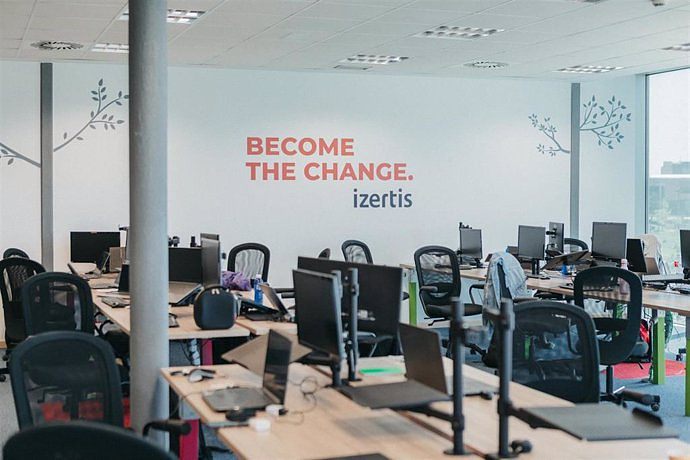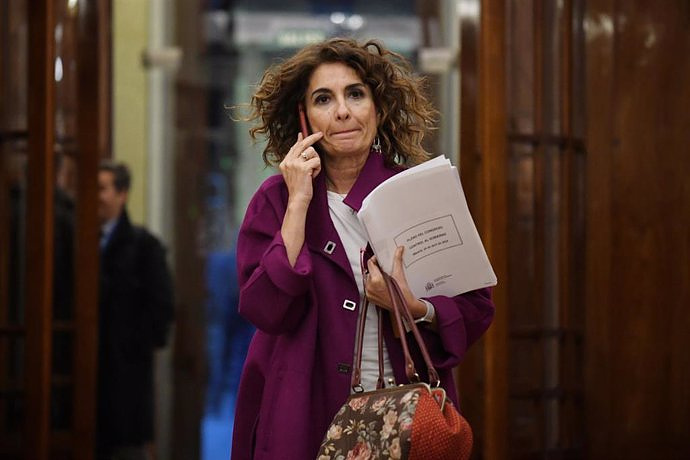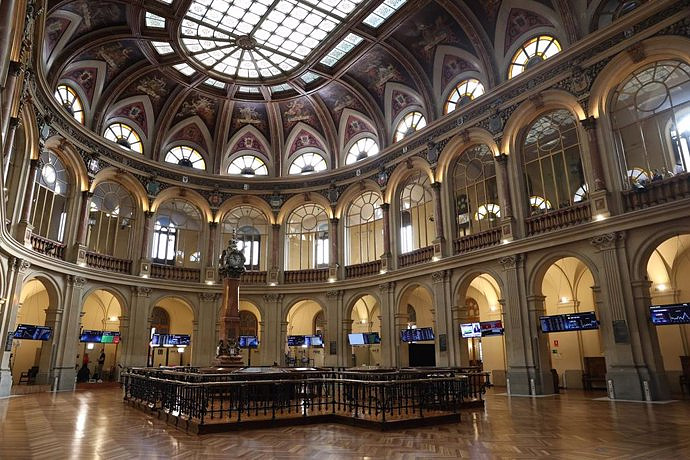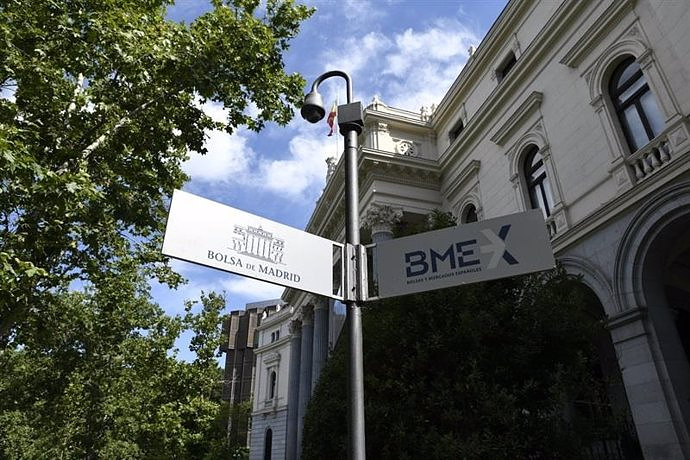This meeting was held after the Executive Committee of the PP, where Ayuso blamed the protest in Madrid on leftist activists
The Ministers of Health of the CCAA of the PP have coincided this Monday in demanding a consensual solution from the Government of Pedro Sánchez in the face of the "serious deficit" of family medicine specialists. After warning that the shortage of family doctors will worsen in the coming years due to retirements, they have demanded that the Ministry urgently convene an Extraordinary Interterritorial Council to immediately incorporate more family doctors in training in the next MIR call.
This meeting, which has been chaired by the Deputy Secretary for Social Policies of the PP, Carmen Navarro, takes place a day after the center of Madrid was filled with tens of thousands of people who have demonstrated against the "mistreatment" of health public. Between 200,000 people, according to the Government Delegation, and 670,000 people, according to the organizers, have marched in four columns through the streets of the capital until they converged in a unitary block in Cibeles.
During Navarro's meeting with the Ministers of Health, it was agreed to propose half a dozen proposals to the Ministry, such as encouraging retired professionals who so wish to remain at least partially active; develop tools to retain family doctors in their positions; or promote the return of those doctors who have developed their careers in other countries.
The meeting of the Ministers of Health has taken place shortly after the end of the National Executive Committee of the PP that Alberto Núñez Feijóo has chaired, where the president of the Community of Madrid, Isabel Díaz Ayuso, has assured that the demonstration this Sunday in Madrid obeys the political mandate of the left, fundamentally from Más Madrid, according to what 'popular' sources have pointed out to Europa Press.
In his open intervention before the media, Feijóo has not made any mention of that massive protest in defense of public health and has focused on the repeal of the crime of sedition by the Government of Pedro Sánchez and on demanding explanations for the Melilla tragedy last June.
Sources from Feijóo's team have later highlighted that there is a problem with primary care throughout Spain Regarding the Madrid demonstration, they have pointed out that a part of that protest was "agitated by political parties", which make "political use" of this matter, but they have avoided entering into more assessments, ensuring that the competence in health matters belongs to the Community of Madrid and each autonomy has its specific reality.
In a meeting held at the national headquarters of the PP, chaired by Carmen Navarro, the councilors have demanded the urgent call for an Extraordinary Interterritorial Council to immediately incorporate more family doctors in training in the next MIR call.
In addition, they have warned that the shortage of family doctors will worsen in the coming years due to retirements if measures such as those proposed are not adopted, as reported by the training in a statement.
The councilors of the PP have requested that the call for the Interterritorial Council should be held with a single point of the day: agree on the necessary reforms to immediately incorporate more family doctors in training in the next MIR call.
They consider that this face-to-face call is prior to any other that the Ministry may propose because it is unavoidable to immediately relax the system of accreditation of teaching units for MIR positions.
REVISION OF THE MIR SYSTEM
The PP advisers demand that "essential review of the MIR system to avoid that, as in recent years, a third of those admitted by Health on the provisional lists do not obtain a resident doctor position."
Thus, in the call for 2023, there are 12,251 admitted for a total of 8,503 places. In 2022, there were 13,059 admitted for 8,188 places. And in 2021, 14,425 for 7,989 seats. "That is, in the last three years, only two out of three of those admitted have obtained a place. And this situation coexists with a growing deficit of specialists," the PP said in the same statement.
Regarding the imminent retirement of family doctors, they have warned that it will be impossible to replace the vacant positions of family doctors if urgent measures are not adopted since in this specialty there is a great imbalance between retirements and new incorporations.
In this sense, they have requested the creation as quickly as possible of a new specialty of urgency and emergency medina. According to the 'popular', creating this specialty is possible just as it has just been done with child and adolescent psychiatry.
In this context, they have agreed to propose to the Ministry half a dozen proposals that are added to those already transferred in recent years: encourage retired professionals who so wish to remain at least partially active; demand that the Government develop tools to encourage their permanence in employment, based on merit competitions to retain family doctors in their positions; demand from the Government the regulations that allow the creation of bridging contracts of up to three years for MIRs who finish their residency as a prior step to obtaining a fixed position in their specialty.
In addition, the PP has proposed flexibility and incentives: Develop formulas that allow combining the reconciliation of family and professional life of specialists with the implementation of incentives to cover the afternoon shift, which is the most demanded by patients.
Among its proposals is also to promote the return of those doctors who have developed their professional career in other countries, and who can help cover the deficit specialties, as well as streamline procedures for the validation of titles of foreign medical specialists. Finally, the PP has proposed to elaborate, once and for all, the state registry of health specialists.

 Exploring Cardano: Inner Workings and Advantages of this Cryptocurrency
Exploring Cardano: Inner Workings and Advantages of this Cryptocurrency Seville.- Economy.- Innova.- STSA inaugurates its new painting and sealing hangar in San Pablo, for 18 million
Seville.- Economy.- Innova.- STSA inaugurates its new painting and sealing hangar in San Pablo, for 18 million Innova.- More than 300 volunteers join the Andalucía Compromiso Digital network in one month to facilitate access to ICT
Innova.- More than 300 volunteers join the Andalucía Compromiso Digital network in one month to facilitate access to ICT Innova.-AMP.- Ayesa acquires 51% of Sadiel, which will create new technological engineering products and expand markets
Innova.-AMP.- Ayesa acquires 51% of Sadiel, which will create new technological engineering products and expand markets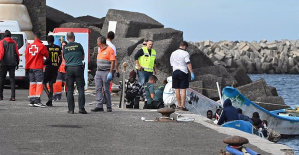 CCAA denounce the lack of a "clear" state policy on immigration and demand more funding
CCAA denounce the lack of a "clear" state policy on immigration and demand more funding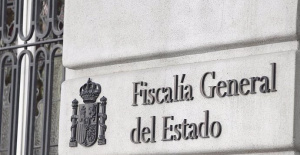 The fiscal leadership endorses the decision of the 'number two' of the Prosecutor's Office to ask to archive the complaint of Ayuso's partner
The fiscal leadership endorses the decision of the 'number two' of the Prosecutor's Office to ask to archive the complaint of Ayuso's partner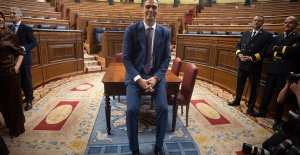 Sánchez will not be able to dissolve the Cortes before May 30 but can submit to a question of confidence
Sánchez will not be able to dissolve the Cortes before May 30 but can submit to a question of confidence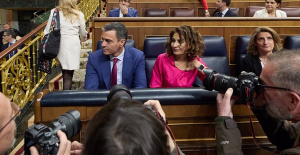 Full letter in which Pedro Sánchez announces a reflection on his continuity in the presidency of the Government
Full letter in which Pedro Sánchez announces a reflection on his continuity in the presidency of the Government How Blockchain in being used to shape the future
How Blockchain in being used to shape the future Not just BTC and ETH: Here Are Some More Interesting Coins Worth Focusing on
Not just BTC and ETH: Here Are Some More Interesting Coins Worth Focusing on Retrópolis brings the golden age of video games and computing to the UPV
Retrópolis brings the golden age of video games and computing to the UPV Looking for video games that value the neighborhoods of Valencia
Looking for video games that value the neighborhoods of Valencia UPV researchers improve the efficiency of air conditioning systems using a geothermal heat pump
UPV researchers improve the efficiency of air conditioning systems using a geothermal heat pump València is committed to citiverse and smart tourism to be "the reference technological hub of the Mediterranean"
València is committed to citiverse and smart tourism to be "the reference technological hub of the Mediterranean" A million people demonstrate in France against Macron's pension reform
A million people demonstrate in France against Macron's pension reform Russia launches several missiles against "critical infrastructure" in the city of Zaporizhia
Russia launches several missiles against "critical infrastructure" in the city of Zaporizhia A "procession" remembers the dead of the Calabria shipwreck as bodies continue to wash up on the shore
A "procession" remembers the dead of the Calabria shipwreck as bodies continue to wash up on the shore Prison sentences handed down for three prominent Hong Kong pro-democracy activists
Prison sentences handed down for three prominent Hong Kong pro-democracy activists ETH continues to leave trading platforms, Ethereum balance on exchanges lowest in 3 years
ETH continues to leave trading platforms, Ethereum balance on exchanges lowest in 3 years Investors invest $450 million in Consensys, Ethereum incubator now valued at $7 billion
Investors invest $450 million in Consensys, Ethereum incubator now valued at $7 billion Alchemy Integrates Ethereum L2 Product Starknet to Enhance Web3 Scalability at a Price 100x Lower Than L1 Fees
Alchemy Integrates Ethereum L2 Product Starknet to Enhance Web3 Scalability at a Price 100x Lower Than L1 Fees Mining Report: Bitcoin's Electricity Consumption Declines by 25% in Q1 2022
Mining Report: Bitcoin's Electricity Consumption Declines by 25% in Q1 2022 Oil-to-Bitcoin Mining Firm Crusoe Energy Systems Raised $505 Million
Oil-to-Bitcoin Mining Firm Crusoe Energy Systems Raised $505 Million Microbt reveals the latest Bitcoin mining rigs -- Machines produce up to 126 TH/s with custom 5nm chip design
Microbt reveals the latest Bitcoin mining rigs -- Machines produce up to 126 TH/s with custom 5nm chip design Bitcoin's Mining Difficulty Hits a Lifetime High, With More Than 90% of BTC Supply Issued
Bitcoin's Mining Difficulty Hits a Lifetime High, With More Than 90% of BTC Supply Issued The Biggest Movers are Near, EOS, and RUNE during Friday's Selloff
The Biggest Movers are Near, EOS, and RUNE during Friday's Selloff Global Markets Spooked by a Hawkish Fed and Covid, Stocks and Crypto Gain After Musk Buys Twitter
Global Markets Spooked by a Hawkish Fed and Covid, Stocks and Crypto Gain After Musk Buys Twitter Bitso to offset carbon emissions from the Trading Platform's ERC20, ETH, and BTC Transactions
Bitso to offset carbon emissions from the Trading Platform's ERC20, ETH, and BTC Transactions Draftkings Announces 2022 College Hoops NFT Selection for March Madness
Draftkings Announces 2022 College Hoops NFT Selection for March Madness

